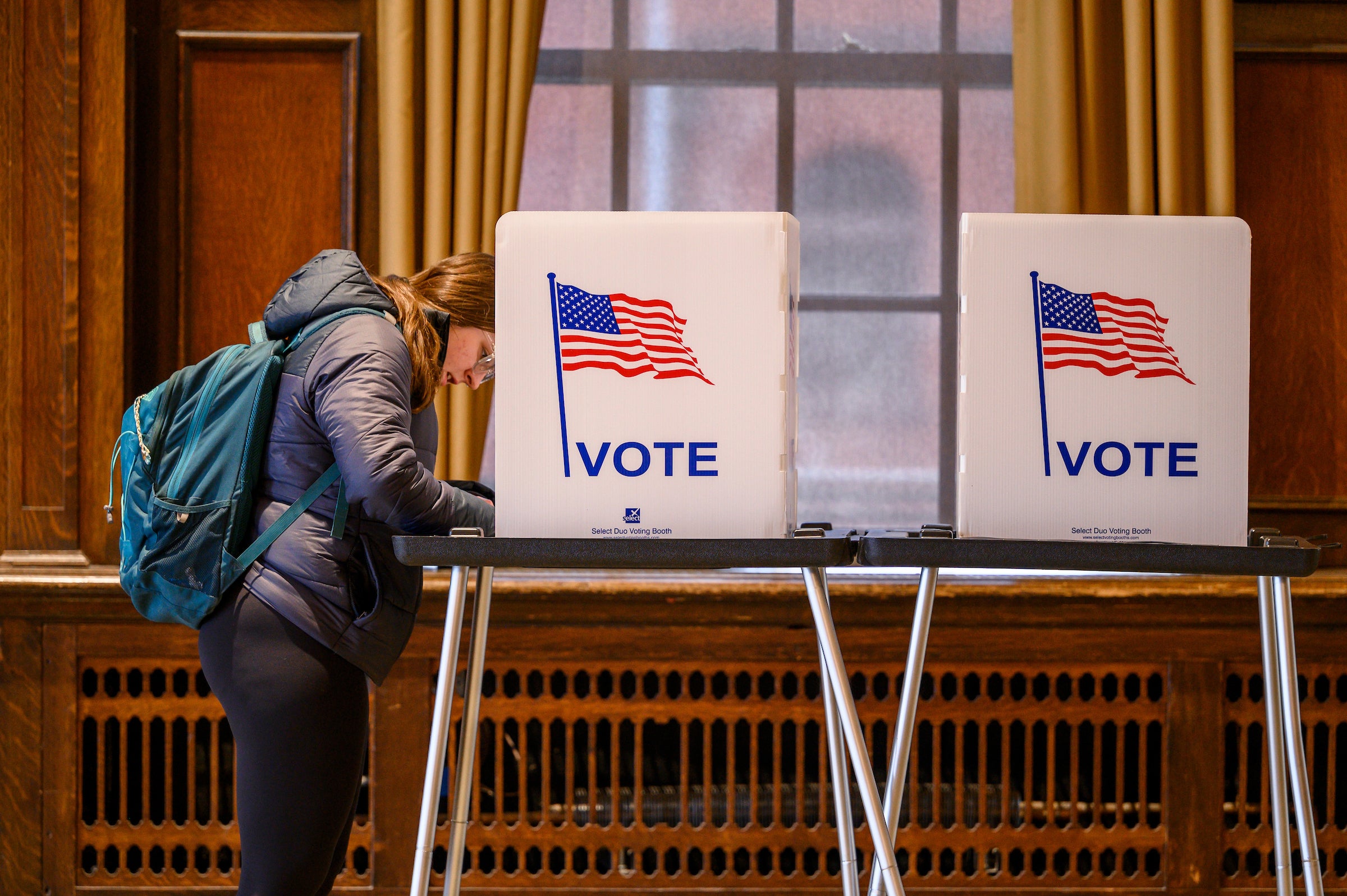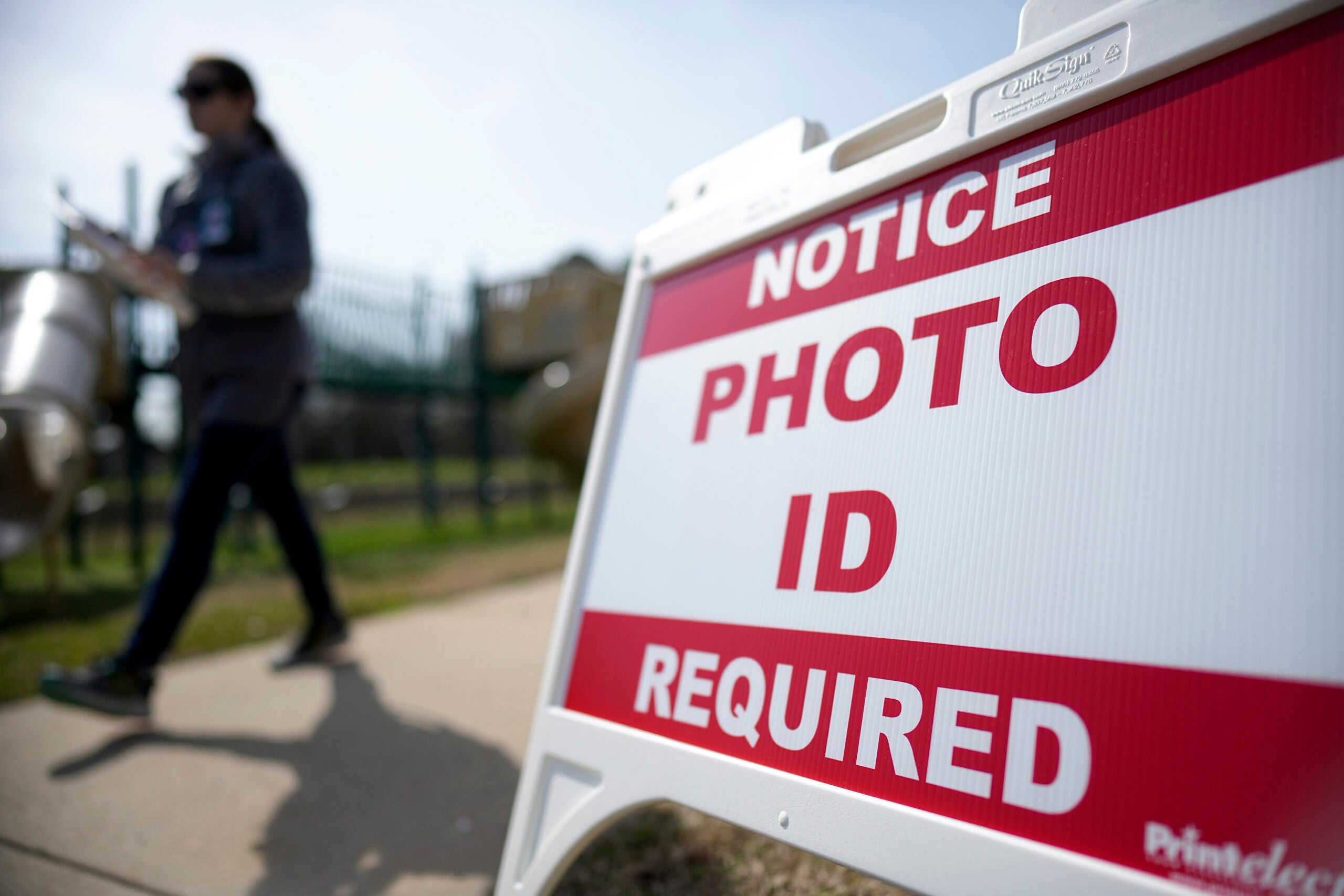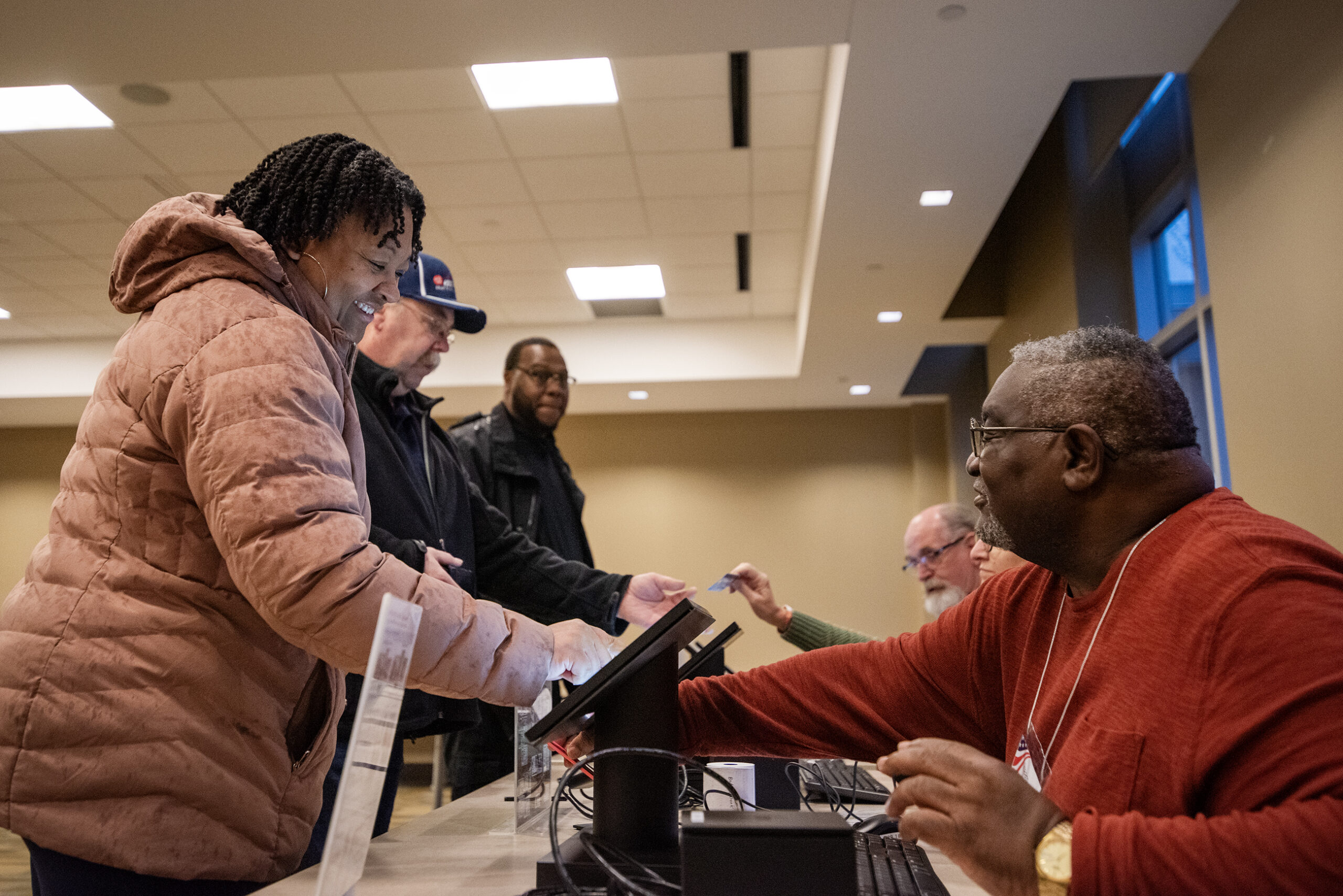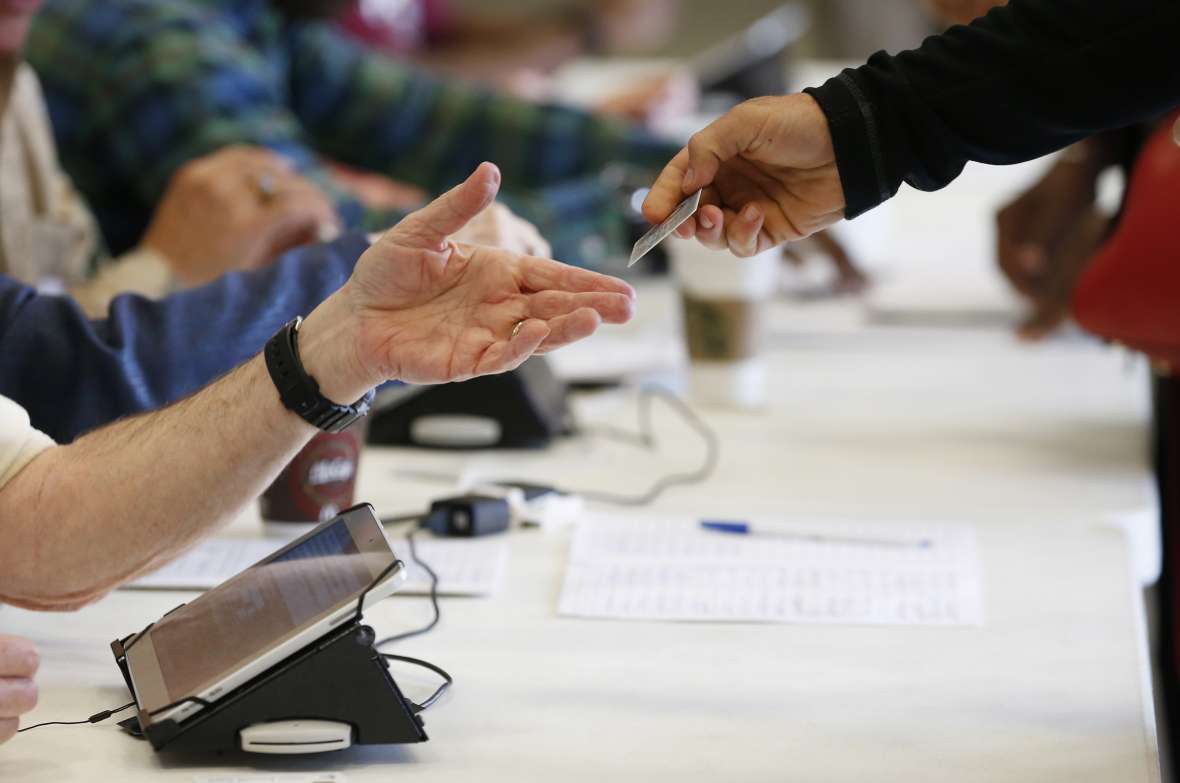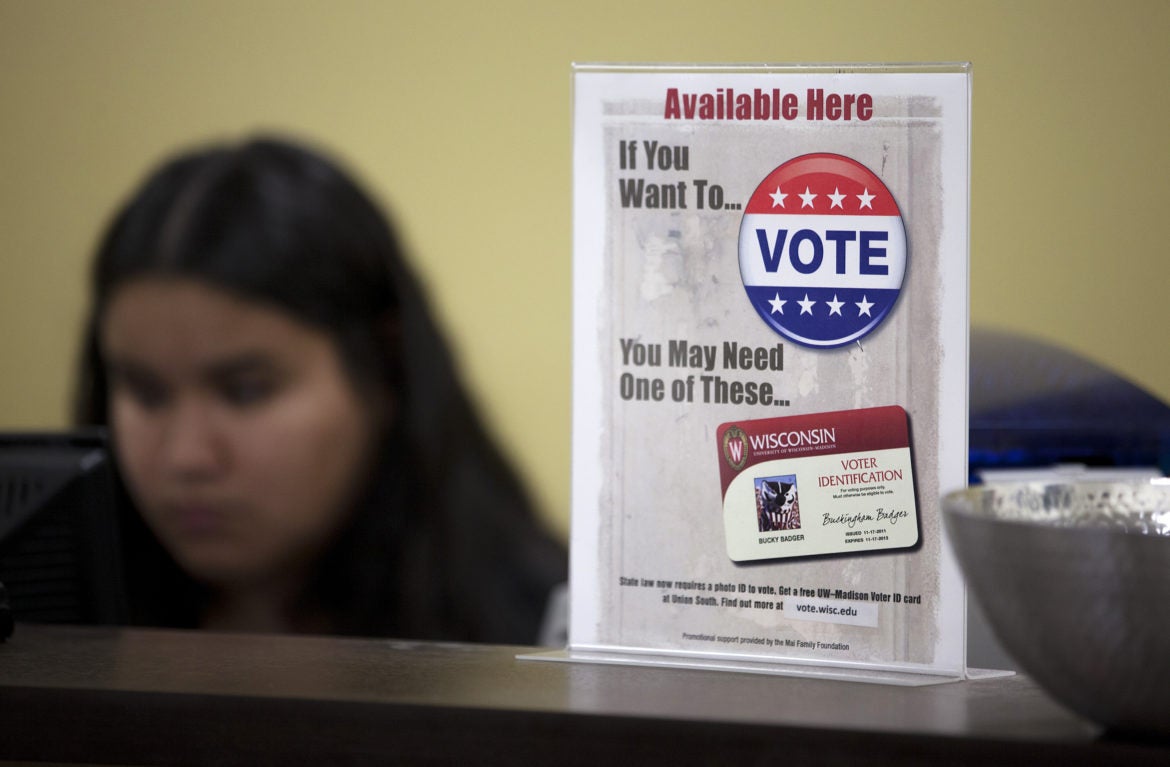Assembly Republicans voted Tuesday to advance a proposal that would enshrine Wisconsin’s existing voter identification law into the state constitution.
That all but ensures the question will move to voters to consider on their April 1 ballots.
The resolution to set up the statewide referendum was approved in both houses of the Legislature along party lines, reflective of an ongoing partisan battle over whether voters should be required to show photographic ID to cast ballots. Republicans say it makes voting more secure, while Democrats say it creates a hurdle to voting.
News with a little more humanity
WPR’s “Wisconsin Today” newsletter keeps you connected to the state you love without feeling overwhelmed. No paywall. No agenda. No corporate filter.
Both sides point to studies of the decade-old state law to back up their arguments. Republicans cite data showing voting rates have only increased in Wisconsin since the law was passed in 2011, while Democrats cite research showing voter fraud — even prior to the passage of voter ID laws — is vanishingly rare.
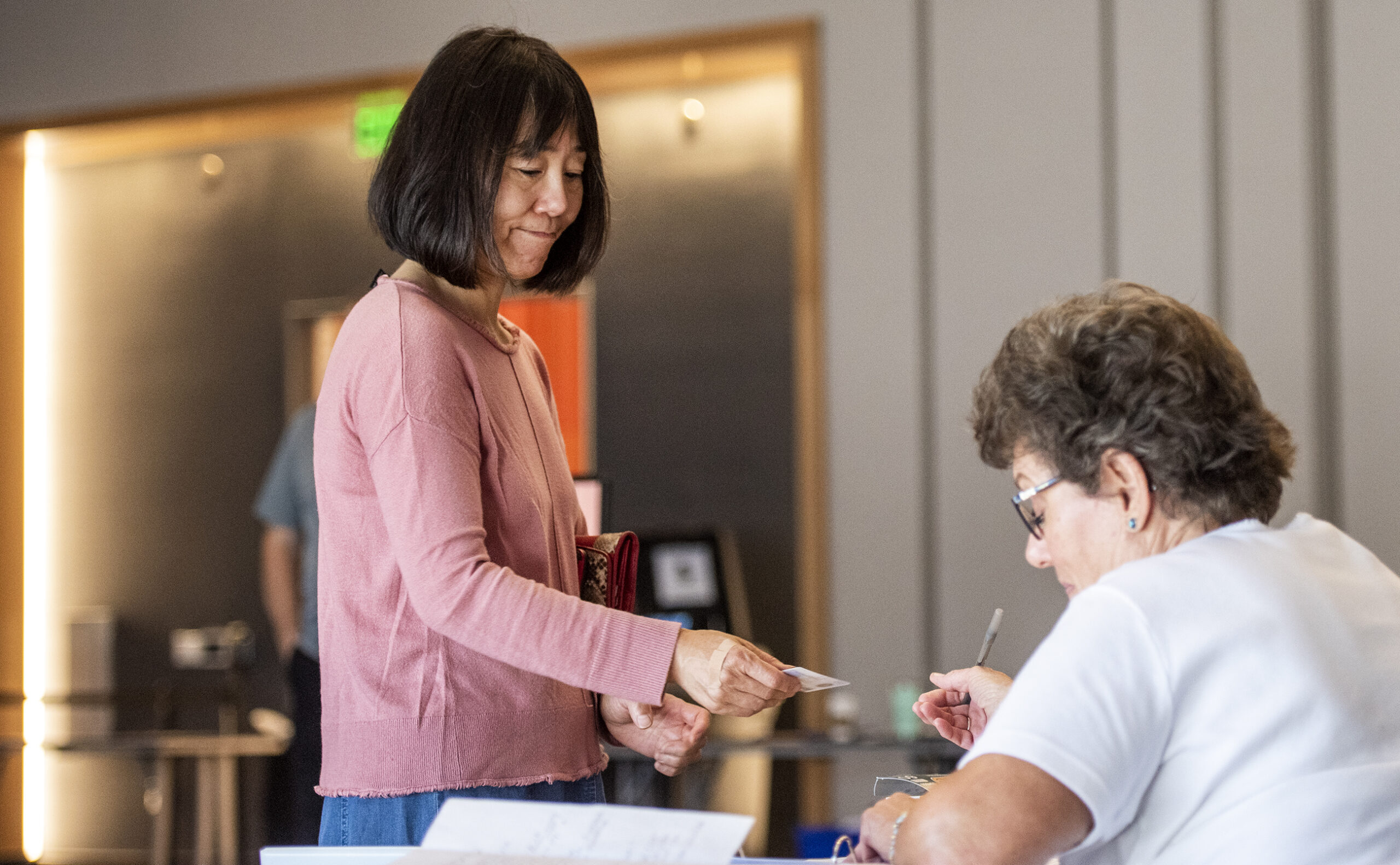
That was the heart of the debate as the bill moved quickly through the Legislature, where it was introduced just one day after lawmakers returned to Madison for the 2025 session. The proposal received fast committee consideration and passed the Senate last week.
The final step was the Assembly, where, after about two hours of debate, lawmakers voted 54-45 along party lines to move the proposal forward.
Constitutional amendments must pass two consecutive legislative sessions and then be approved by voters. They are not subject to a governor’s veto.
The identical voter ID resolution passed the Legislature for the first time last session, meaning it heads next to voters.
Assembly debate hits familiar points
According to the MIT Election Data and Science Lab, Wisconsin is one of six states with strict photo ID requirements for voters. Current state law requires voters to submit an active form of identification, which can include a free voter ID card available from the DMV.
The law was passed under Gov. Scott Walker in 2011 and was upheld by state and federal courts in 2014.
Supporters of voter ID laws say they make elections more secure. On Tuesday, Rep. Dave Maxey, R-New Berlin, argued they increase trust among voters.
“This verification process helps maintain public confidence in our electoral outcomes, reinforcing the principle of one vote, one person,” he said.
Rep. Amanda Nedweski, R-Pleasant Prairie, cited data showing Milwaukee had the highest turnout rate of America’s 50 largest cities in the 2024 election.
“Does that sound like voter suppression?” she said.
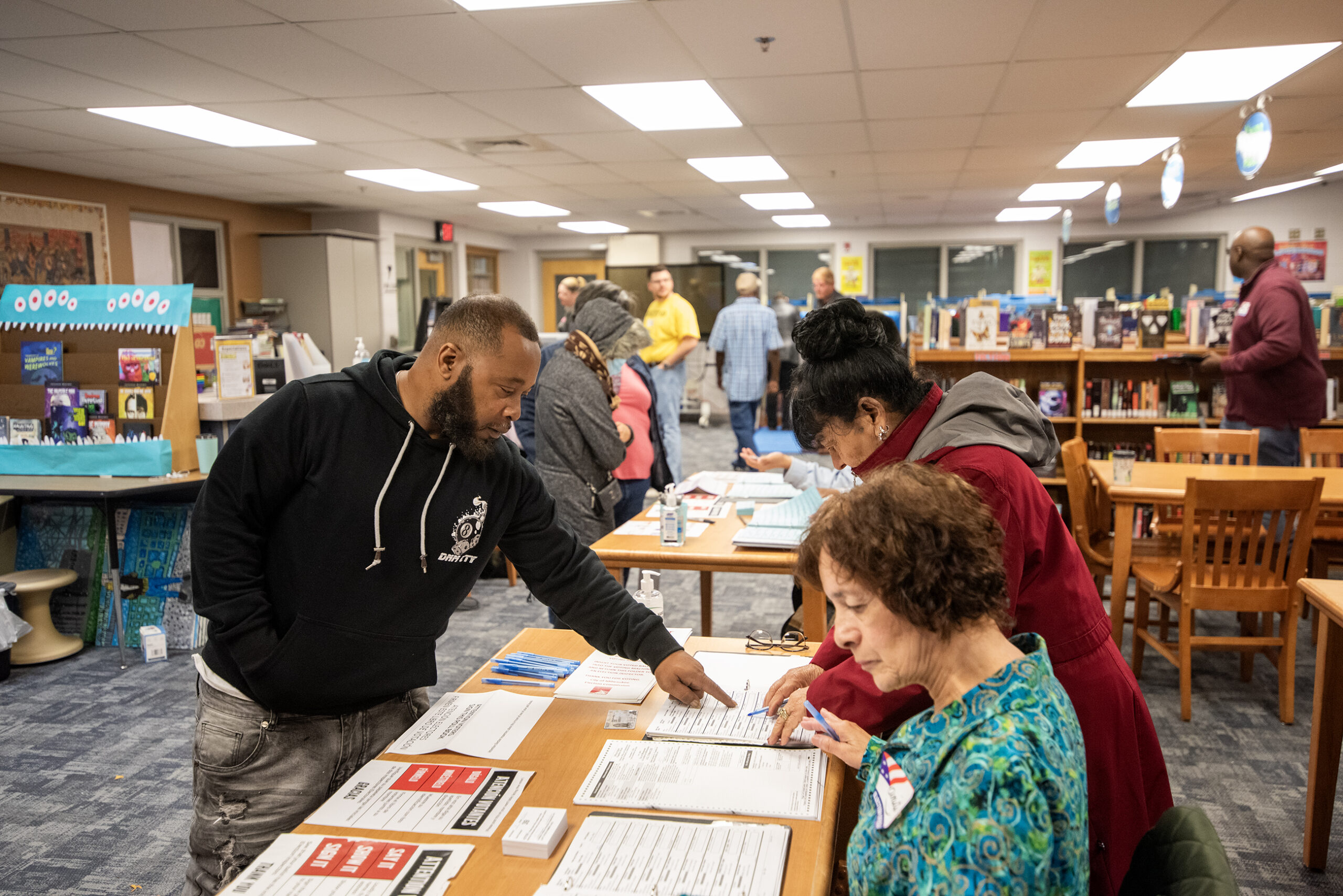
Critics argue these laws affect people who struggle to obtain IDs, including people with disabilities, older people, low-income people and rural residents. Some state laws have been challenged on the grounds they allegedly target voters of color.
Rep. Lee Snodgrass, D-Appleton, said voters with disabilities and rural residents were most likely to struggle to obtain proper identification.
“When the Disability Rights Coalition tells us that they have voters who will, 100 percent be disenfranchised by barriers like this, we have to pay attention,” Snodgrass said. “Responsible legislating is to remove the barriers before we enshrine something into a state constitution, much less put it into state law.”
Rep. Mike Bare, D-Verona, argued Republicans were playing politics by getting a question onto the April ballot to drive up turnout for a high-stakes state Supreme Court election.
“This is predictable. We’ve seen this from the majority over and over, that they will do what it takes at every opportunity to protect their power, protect their political gains, and help themselves,” he said. “This could go on a ballot next spring, next fall, but it’s being rushed onto this April ballot. They’re recycling an undemocratic policy that’s already in state law for political gain.”
Republicans argued the Wisconsin Supreme Court — which currently has a 4-3 liberal majority — is one motivating factor for wanting to render permanent what is already state law.
“As we have seen over the last several years, the Supreme Court can find very creative ways to overturn laws as unconstitutional,” said David Murphy, R-Greenville. “Having voter ID in the constitution will keep it safe from activist courts.”
The court’s previous conservative majority upheld the law in 2014.

Recent polling shows that a majority of Americans support voter identification requirements, which Assembly Speaker Robin Vos, R-Rochester, pointed to as evidence Wisconsinites will support the measure.
According to Gallup, about 84 percent of Americans support providing both photo identification and proof of citizenship to vote. While Republicans are more supportive of those requirements, Gallup found a majority of Democrats support them, too.
Wisconsin Public Radio, © Copyright 2025, Board of Regents of the University of Wisconsin System and Wisconsin Educational Communications Board.

